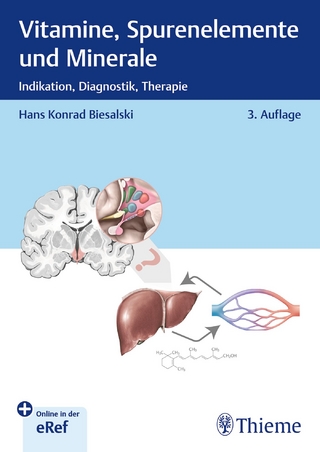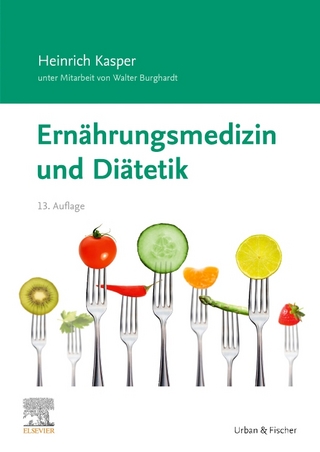
Lactic Acid Bacteria
CRC Press (Verlag)
978-1-138-39163-5 (ISBN)
Lactic acid bacteria (LAB) are a diverse group of bacteria that comprise low GC content Gram-positive cocci or rods that produces lactic acid as the major end product of the fermentation process. Bifidobacterium genera may also be considered as a part of the LAB group for possessing some similar phenotypical characteristics despite the higher GC content. The key feature of LAB metabolism is efficient carbohydrate fermentation. This contributes to the production of several microbial metabolites that result in the improvement of flavor and texture of fermented foods, in addition to its positive impact on the human health when LAB is administered as a probiotic.
The book deals with advances made in the functionalities of LAB, such as their effect on vitamin D receptor expression, impact on neurodegenerative pathologies, production of B-vitamins for food bio-enrichment, production of bacteriocins to improve gut microbiota dysbiosis, production of metabolites from polyphenols and their effects on human health, effect on reducing the immunoreaction of food allergens, as biological system using time-temperature to improve food safety, and the use of probiotics in animal feed. The book also reviews the use of LAB and probiotic technologies to develop new functional foods and functional pharmaceuticals.
Marcela Albuquerque Cavalcanti de Albuquerque Marcela Albuquerque Cavalcanti de Albuquerque, PhD and MSc in Sciences (USP and UFRJ, Brazil), BSc in Biological Sciences (UNIRIO, Brazil), is a Researcher (USP, Brazil) and a scientific-based Entrepreneur. Her principle areas of study include the use of lactic acid bacteria to increase B-vitamin content in foods and to develop hypoallergenic foods; probiotics and prebiotics. She has published peer-reviewed articles, book chapters and works in scientific meetings. Alejandra de Moreno de LeBlanc Alejandra de Moreno de LeBlanc, PhD in Biochem. (UN Tucuman, Argentina), is an Independent Researcher (CERELA-CONICET, Argentina). Her principle areas of study include the evaluation of lactic acid bacteria as modulators of the host immune response in cancer, inflammatory diseases and neurodegenerative diseases. She has edited 2 books, published 80 peer-reviewed articles, 23 book chapters and 113 works in scientific meetings. Jean Guy LeBlanc Jean Guy LeBlanc, PhD in Biochem. (UN Tucuman, Argentina), MSc and BSc in Biochem. (U. Moncton, Canada), is a Principal Researcher (CERELA-CONICET, Argentina). His principle areas of study include the use of lactic acid bacteria to increase bioactive compounds in foods or as bio-pharmaceuticals to treat and prevent vitamin deficiencies and inflammatory diseases. He has edited 7 books, published 94 peer-reviewed articles, 30 book chapters and 135 works in scientific meetings. Raquel Bedani Raquel Bedani has a MSc and PhD in Food and Nutrition at São Paulo State University (UNESP, Brazil) and also holds a BSc in Biological Sciences (UNESP). Part of her doctoral study was done at Reference Center for Lactobacilli (CERELA, Argentina). Raquel developed postdoctoral research at University of São Paulo (USP, Brazil). She has several publications in peer-reviewed journals and book chapters. Her main field of research includes the development of probiotic and prebiotic foods and the evaluation of their effects on health.
Probiotic legislation and dose response. Vitamin production by lactic acid bacteria: the effect on vitamin content in foods and in human microbiota. Impact of probiotics on vitamin D receptor expression. Impact of probiotics on inflammatory bowel disease and irritable bowel syndrome. The potential use of lactic acid bacteria in neurodegenerative pathologies. Lactic acid bacteria bacteriocins and their impact on human microbiota. Effect of short chain fatty acids produced by probiotics on metabolism. Metabolites of polyphenols produced by probiotic microorganisms and their beneficial effects on health. Impact of probiotics on cardiovascular disease. Impact of probiotics on metabolic disorders (obesity, diabetes type 2). Impact of probiotics on animal health. Probiotics and quorum sensing: potential mechanisms. Anti-allergenic effect of probiotics on food
| Erscheinungsdatum | 26.02.2020 |
|---|---|
| Zusatzinfo | 23 Tables, black and white; 7 Illustrations, color; 13 Illustrations, black and white |
| Verlagsort | London |
| Sprache | englisch |
| Maße | 156 x 234 mm |
| Gewicht | 635 g |
| Themenwelt | Medizin / Pharmazie ► Gesundheitsfachberufe ► Diätassistenz / Ernährungsberatung |
| Naturwissenschaften ► Biologie | |
| Technik ► Lebensmitteltechnologie | |
| ISBN-10 | 1-138-39163-8 / 1138391638 |
| ISBN-13 | 978-1-138-39163-5 / 9781138391635 |
| Zustand | Neuware |
| Haben Sie eine Frage zum Produkt? |
aus dem Bereich


